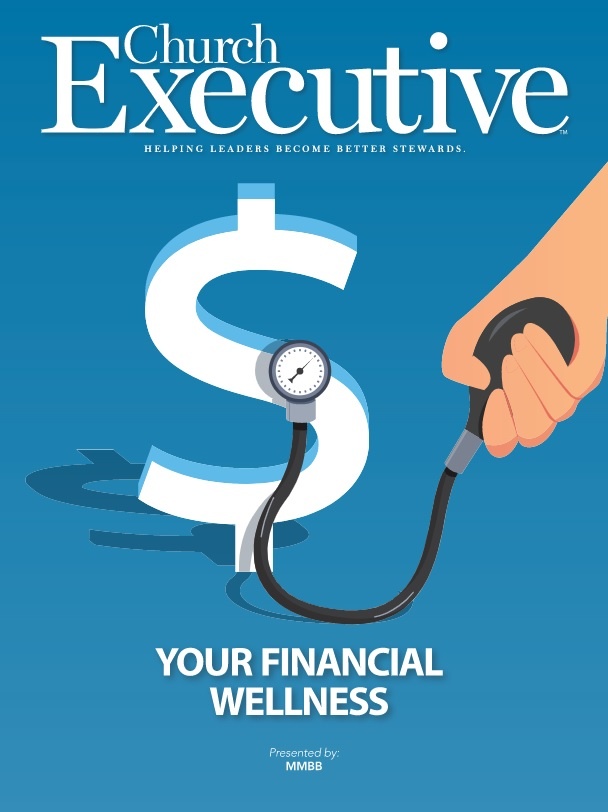
 By Rev. Earl Thorpe, Ph.D.
By Rev. Earl Thorpe, Ph.D.
We often consider retirement the end of a person’s vocational journey. But if, as Shakespeare wrote, “all the world is a stage,” retirement might just be the end of the first act in a clergyperson’s calling and the beginning of the second act in their life of service.
While many retired clergy choose to enjoy their well-deserved season of rest, some seek ways to continue nurturing their spiritual calling.
In this article, we’ll explore some of the best career options for retired ministers, each allowing them to leverage their unique skills, experiences and passion for serving others.
Teaching and education: Retired clergy members possess a wealth of knowledge about theology, ethics and spirituality, which they can share by becoming educators in schools, colleges or seminaries. Teaching theology or religious studies allows them to inspire the next generation of religious leaders and scholars.
Moreover, retired clergy can also offer workshops and seminars on topics such as ethics, moral development and conflict resolution within educational institutions and as independent instructors. Typically, in college settings, these roles will be adjunct professor positions unless a clergyperson has a PhD.
Hospice, healthcare, Police and Fire Department or industrial chaplains: Clergy deeply understand end-of-life spirituality and emotions. Becoming a hospice chaplain gives them an opportunity to support individuals and their families during their most vulnerable moments. They offer comfort, companionship and spiritual guidance to patients and families facing terminal illnesses.

Healthcare chaplains provide spiritual support to patients and their families, offering solace during an illness or crisis. This role is especially critical because patients often grapple with questions of faith and meaning. As PastoralCounseling.org explains, chaplains in healthcare settings play an essential role in the holistic care of patients, addressing their spiritual and emotional needs, while medical experts focus on the patient’s physical wellbeing.
Police and Fire Department chaplains provide personal and spiritual counseling and moral support to Police and Fire department staff including during crises, such as deaths in the line of duty.
Industrial chaplains help people with work-life issues, along with individual and family needs, in a business or industry. Ministers’ experience offering spiritual guidance to those who are stressed or balancing many priorities is transferrable to roles as industrial chaplains, according to a recent Chron.com article, “Jobs for Ex-Pastors.”
Interim ministers: Retired clergy often serve as interim ministers for churches that are between pastors or in the middle of a pastoral search.
Community outreach: This arena allows retired clergy to continue serving those around them through community outreach programs. They can establish or join non-profit organizations that address various social issues such as homelessness, addiction recovery or food insecurity.
In addition, a minister’s leadership and networking skills can be invaluable in mobilizing resources and support.

Interfaith dialogue and peacebuilding: Interfaith communication is often a skill in a minister’s wheelhouse. Thus, clergy can work as mediators, facilitators or advisors in organizations that promote peace and understanding among different religious and cultural groups. Ministers’ experience promoting tolerance and harmony can be invaluable in fostering cooperation and unity.
Pastor, lend me your ears
Many congregants confide in their pastors on all kinds of issues, from spiritual to emotional and from financial to familial. As a result, counseling and coaching positions are a natural fit for retired ministers since they already possess extensive experience providing spiritual guidance and support.
Let’s take a closer look at the best counseling and coaching career options for retired clergy. (Note: Most of these jobs might require additional education, field work and licensing.)
Pastoral counseling: Pastoral counselors offer emotional and spiritual assistance to individuals and families facing various challenges, from grief and addiction to relationship issues. They often work in counseling centers or become licensed pastoral counselors and work in private practice. In both settings, pastoral counselors help clients navigate life’s difficulties while integrating perspectives related to faith.
Pastoral counseling not only enables retired clergy to continue their ministry, but also allows them to expand their skill set by incorporating psychological techniques into their advising services, as PastoralCounseling.org points out.
Spiritual career coaching: Clergy members often help individuals find meaning and purpose. In the role of spiritual career coaches, they can assist clients in aligning their career choices with their spiritual values and beliefs. This work includes helping individuals explore careers within religious organizations, non-profit work, or other fields that align with their faith.
Life and transition coaching: Ministers can leverage their experience guiding congregants through significant life transitions, such as marriage, parenthood and loss, as life coaches. Life coaches help clients navigate life changes, set goals and overcome obstacles. This versatile coaching role allows them to support clients in personal and professional growth.
Clergy members possess unique skills and qualities, such as empathy, active listening and spiritual guidance, that make them well-suited for careers in teaching, the non-profit world, counseling and career coaching. Whichever of these roles they choose to pursue, clergy members can continue to positively impact people’s lives while seeking fulfilling second chapters in their own lives.
The Rev. Earl Thorpe, Ph.D., serves as the Financial Wellness Program Director at MMBB. [ www.mmbb.org ] Before joining MMBB, Thorpe spent nearly 20 years on Wall Street, where he provided equity sales, research coverage, market-making, and execution trading to top hedge, mutual and pension funds.
Thorpe is the pastor of the Church-in-the-Garden, First Baptist, a multicultural American Baptist Church located in Garden City, NY. He earned his Doctor of Philosophy degree in Faith-Based Non-Profit Leadership, Administration, and Supervision at Fordham University. Thorpe earned a Master of Divinity Degree in Biblical Studies with a New Testament Concentration from Union Theological Seminary and a Bachelor of Arts Degree in Politics and Japanese from New York University.


